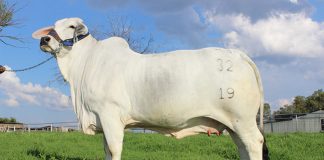
Photo: FW Archive
The support expressed by the farming sector, and in particular the Red Meat Producers’ Organisation’s (RPO), for the live export of sheep by sea, has been met with sharp criticism from the National Council of Societies for the Prevention of Cruelty to Animals (NSPCA).
The RPO, together with Agri SA and the Red Meat Industry Forum (RMIF), recently announced that they were in favour of further live shipboard sheep exports from South Africa by Kuwaiti company, Al Mawashi, to predominantly Muslim markets in both Kuwait and the United Arab Emirates.
This was after two animal health and welfare experts, contracted by the RMIF, recently inspected Al Mawashi’s holding feedlot and livestock transport ship in the Eastern Cape.
As was previously reported by Farmer’s Weekly, a joint statement issued by Agri SA and the RPO indicated that the two experts found Al Mawashi’s operations in South Africa were compliant with the World Organisation for Animal Health’s (OIE) standards for livestock exports by sea.
“The RPO, together with Agri SA, […] support the trade of livestock by ship if it’s ethically done without animal abuse. These shipments should be done within the OIE standards, overseen by [the South African] government as the regulatory authority,” the statement read.
The NSPCA is the lead applicant in a case, to be heard in early August, seeking to have the High Court permanently ban livestock exports from South Africa, due to alleged animal health and welfare violations during two previous such shipments.
Marcelle Meredith, executive director of the NSPCA, said that “ethics and live exports go together like chalk and cheese”.
“Live animal export by sea is a trade that is inherently unethical given the undeniable and unavoidable animal suffering that takes place on board these ships. [The OIE’s] standards simply do not belong in a country like South Africa where animals are constitutionally recognised as sentient beings, and there is strong animal protection legislation […] that supersedes standards in any event,” she said.
Shaykh Achmat Sedick, director of South Africa’s Muslim Judicial Council Halaal Trust, said the trust also opposed the shipboard livestock exports.
“From an Islamic perspective, the condition of the animals should be tayyib, which means that when the animals are transported, it must be done with utmost care in order not to [physically] harm [or stress] the animal [in any way], which is not the case. Therefore, it violates the requirements and standards needs for the animal to be considered tayyib […] for halaal certification.”











